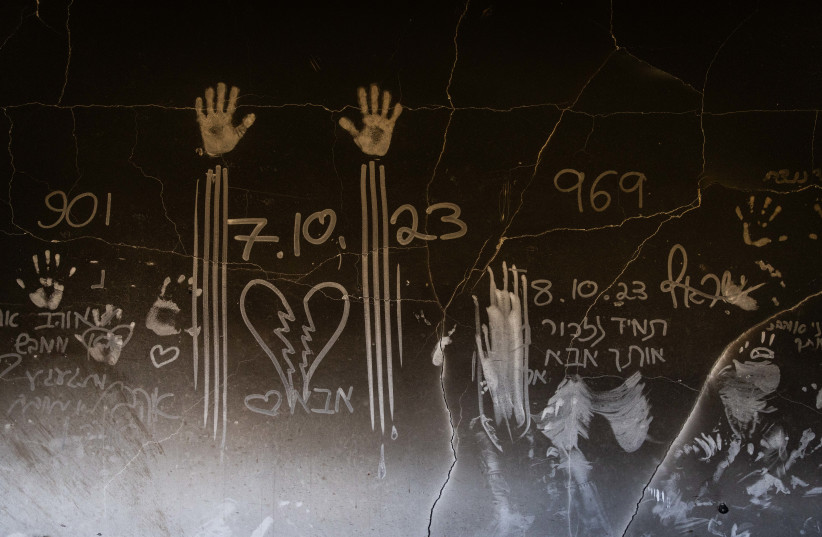It was the Greek philosopher and mathematician Archimedes who advanced the concept known as the Archimedean point, a theory whereby if the point is properly leveraged, anything can be raised – in theory even the world itself.
We are currently living as a people and at a time where we are in essence at the center of gravity – another mathematical concept postulated by Archimedes. The center we sit at is of historical gravity and the implications of how events will shift in one direction or the other are dramatic on epic proportions. In order to achieve the proper course of action, we are required to somehow identify that Archimedean point.
More than eight months on, we remain amid the height of a war forced upon us by the events of October 7. Our children remain on the front lines and our reserve soldiers continue to be called out of their homes and jobs. There are 124 people that remain in captivity and tens of thousands of Israelis are unable to return to their homes that remain evacuated.
We know all too well that Jewish history is replete with tragedy and catastrophe. The phrase that we recite of how ‘in every generation’ we are forced to contend with enemies who seek our destruction is a very harsh truth. Throughout the generations we have faced countless despotic tyrants who choose the murder and expulsion of Jews as a central part of their quest for power. In the face of the threat of our actual extermination, time and again we have been forced to create new tools and avenues of national resilience to contend with all sorts of enemies.
One such tool has been the realization that however comfortable we might begin to feel as a people, we can never let down our guard in recognizing that danger can always still lie ahead.

This reality is literally built into Jewish tradition whereby there are certain fail-safe stops in the Jewish life cycle that force us to remember who we are and escape from the routine. Shabbat is perhaps the most prominent example. Every seventh day we stop and embed ourselves in our traditions and values and commit to quality time with family and community.
The holiday of Shavuot
Shavuot, when we commemorate the giving of the Torah is similarly a holiday that reminds us of the fact that we are different from any other people. The Torah is not simply a book of laws or a chronicle of our past. It is the very root of our identity as a holy people – a people that must always remember that our heritage comes with both responsibility and, tragically, with risk.
As much as certain enemies might wish to make this war about borders or territory, history reminds us that the war is about so much more. It is about the very existence of Jews in the world. And in fact, while the stakes might not always be clear because we have a strong army that will succeed in defending us, this is a war for Jewish survival.
As we mark Shavuot this year, it is also worth remembering the other identifying characteristic of the holiday – as the holiday of the harvest. In this sense it is the ultimate Israeli holiday as a day that allows us to celebrate our connection to the land and salute the wonder of how hard work combined with God’s hand makes the fields flourish and produce sustenance and beauty. This holiday has always been particularly beloved in the kibbutzim and moshavim where agriculture is a central part of their spiritual and cultural ethos.
This year, the holiday demands us of to find that Archimedean point that will take us all out of this current time of pain and tragedy. It must restore the land to its glory through the return of safety, security, and – most importantly – the return of the hostages, and the safety of our soldiers.
In my mind that point will come when the farmers on our borders will once again be able to harvest their fields without the threat of incoming rocket fire, sitting tall atop their tractors, surrounded by endless rows of growing produce.
That is the victory picture that we can all pray for on this holiday.
The writer is chair of the Mizrachi faction in the National Institutions, and of the WZO’s Rural Growth and Development Division (Hativa Lehityashvut).
